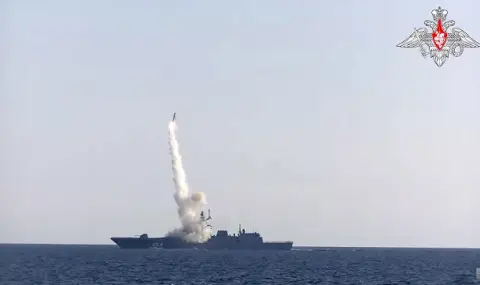Russia and Ukraine have accused each other of violating the agreement announced by the US less than a day ago, reached with the mediation of Washington, to stop attacks on energy infrastructure and establish a ceasefire in the Black Sea, summarize "Reuters" and the BBC.
Russian Deputy Prime Minister Alexander Novak said that "despite all discussions, the Ukrainian side continues attacks on Russian energy facilities and infrastructure". Russia's Defense Ministry said Ukrainian drones had attacked an underground gas storage facility in annexed Crimea and an energy facility in the Bryansk region.
The Ukrainian General Staff rejected Moscow's claims as "false and baseless" and accused the Kremlin of trying to escalate the war and promote "false propaganda." Kiev denies carrying out strikes on Russian energy facilities on March 25 and 26, including in the Kursk and Bryansk regions, as well as in Crimea.
According to Ukrainian authorities, since March 18 - the date Vladimir Putin held a phone call with Donald Trump - Russia has carried out eight attacks on Ukrainian energy facilities, although Moscow claims to have stopped strikes on Ukrainian energy facilities.
On Wednesday night, Russian forces launched 117 drones, according to the Ukrainian military. The biggest blow was inflicted on President Zelensky's hometown of Krivoy Rog, where at least 15 explosions were recorded. Cities in the Sumy and Mykolaiv regions were also affected. Ukraine claims to have shot down 56 drones, and another 48 were "lost" - a term used for drones neutralized through electronic warfare.
President Zelensky said that "large-scale strikes after ceasefire talks are a clear signal that Moscow is not seeking real peace" and called for new sanctions from the US. According to him, Russia is showing its true intentions through its actions, not words.
Meanwhile, the Kremlin has set a condition for the entry into force of the maritime ceasefire - the restoration of access to the international payment system of a sanctioned Russian state bank, which the EU has rejected. It should be noted here that Moscow is mainly insisting on the lifting of sanctions imposed by the EU. Brussels has indicated that it will not consider easing sanctions until Russian troops have fully withdrawn from Ukrainian territory.
While the ceasefire remains formally in force, mutual accusations and ongoing strikes reveal the fragility of the agreements and the deep mistrust between the parties, despite US efforts to build a basis for a broader peace process.
